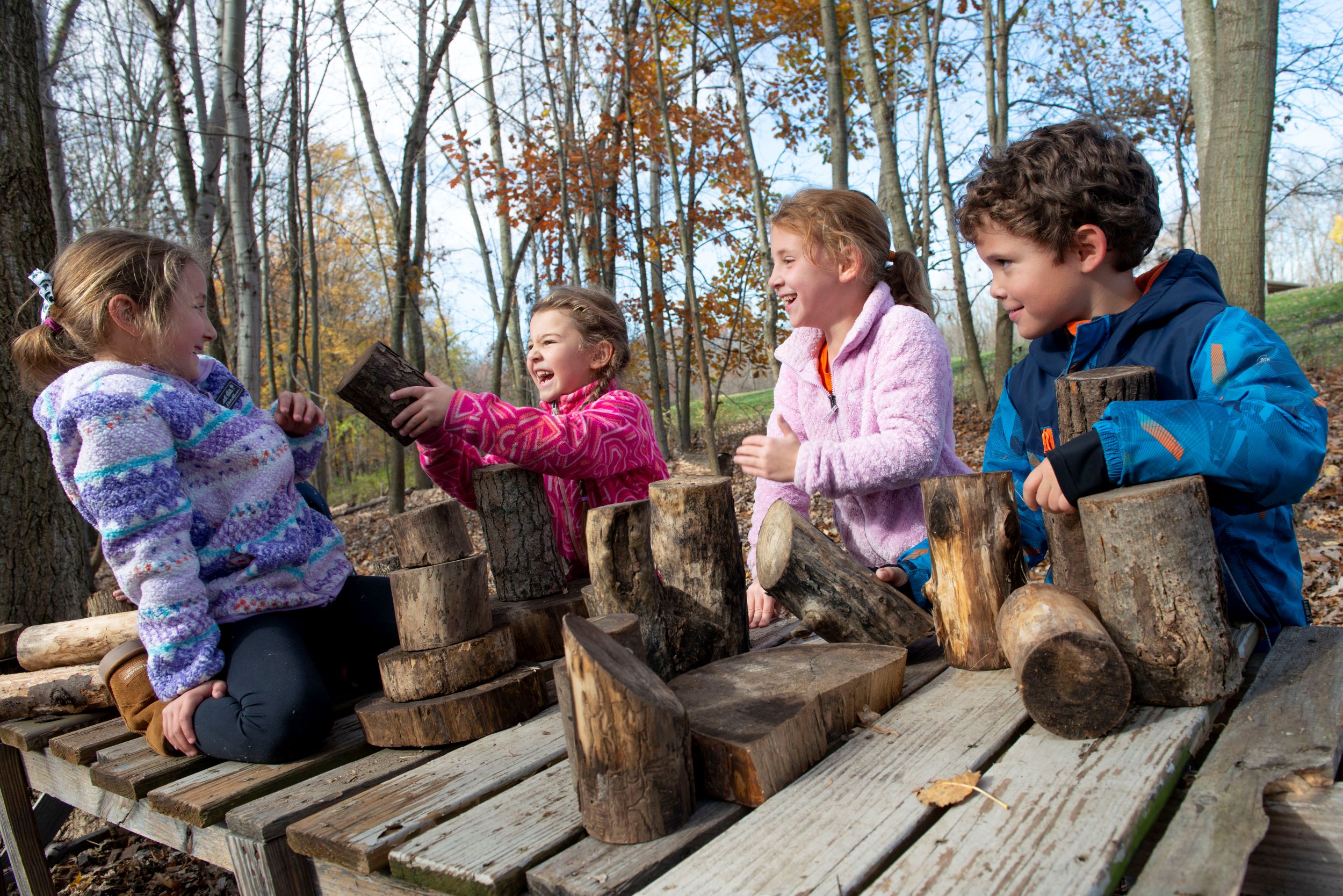Academics
When Lansing Christian School moved to our beautiful 66-acre campus 20 years ago, it was the hope then that someday the school would utilize the expansive acreage and wooded wetlands as part of a student’s Christian education here at LCS. As the school developed its 5-year strategic plan in 2020, optimizing the school’s facilities and grounds to better support the people and programs at LCS became a priority. To support that goal, in 2021 the school started taking significant steps towards identifying and developing outdoor spaces to help support outdoor teaching and learning well.
So why outdoor learning, and why now?
- As Christians, we know that the purpose of creation is to bring us closer to God, the Creator. As a Christian school, we have an opportunity to support children and young people in seeing, understanding, and experiencing God’s presence through his creation, and to learn through their education how to steward and care for God’s creation.
- We know that time in nature is an essential investment in our student’s physical, emotional and spiritual health. Research tells us that children live through their senses and that being close to nature focuses, calms, and excites the senses. Full use of our senses helps stimulate thinking, creativity and wonder.
- Studies have shown that being close to nature helps boost a child’s attention span, and that children have greater ability to concentrate when they are learning in more natural settings.
- With the amount of time that our children and young people spend on screens we need to bring balance to their lives and to their learning. We have this beautiful resource at our finger tips and we are excited to explore utilizing the outdoors as an additional platform/opportunity to support the whole student.

PHASE ONE
In the spring of 2021, a group of parent volunteers helped to cut new paths in the woods to create over two miles of walkable trails and cleared several learning spaces throughout our woods. We also worked with an architect to help identify key structures that the school could develop to provide areas on our campus for outdoor learning.
Thanks to the generosity of the LCS community we raised nearly $200,000 to move forward Phase One of the school’s Outdoor Learning Initiatives. Much of the early progress on the Outdoor Learning Initiative has been moved forward through the volunteer help of parents, and we look forward to beginning construction on the larger structures in the Spring of 2022.
- Trails and Outdoor Learning Spaces: Roughly 2 miles of walkable trails have been developed throughout the woods at LCS. Several larger areas were also cleared and are being developed into flexible outdoor learning spaces for our PreK-12th grade students.
- Natural Playground: A natural playground was constructed using felled trees and wood from our property. The space includes areas with logs for climbing and balancing, an imaginative play area with a recycled rowboat, and a messy materials area where kids can create small and large structures using items found in nature.
- Learning Pavilion/Elementary Playground: On the elementary side of the building, a mono-sloped Learning Pavilion will be constructed alongside the youth soccer field. The structure will fit roughly two classes of students and open up to provide a panoramic view of our wooded wetland areas. The plan includes an ADA-compliant sidewalk to the pavilion and our youth soccer field and designates a space to create a larger sledding hill for students.
- Amphitheater: Between the middle and high school wings of the building, an amphitheater will be built utilizing the natural slope of the landscape. The amphitheater will include a 25’x10’ stage trellis overhang and benches to fit roughly 60 people as well as space for overflow seating. The amphitheater will have a sound system for amplified sound and is designed to allow for future expansion.
- Patio Spaces: Phase One will also include installing two patio areas outside of the school’s common space. The areas will have seating and can be used at lunchtime, during collaborative learning time, or for meetings.